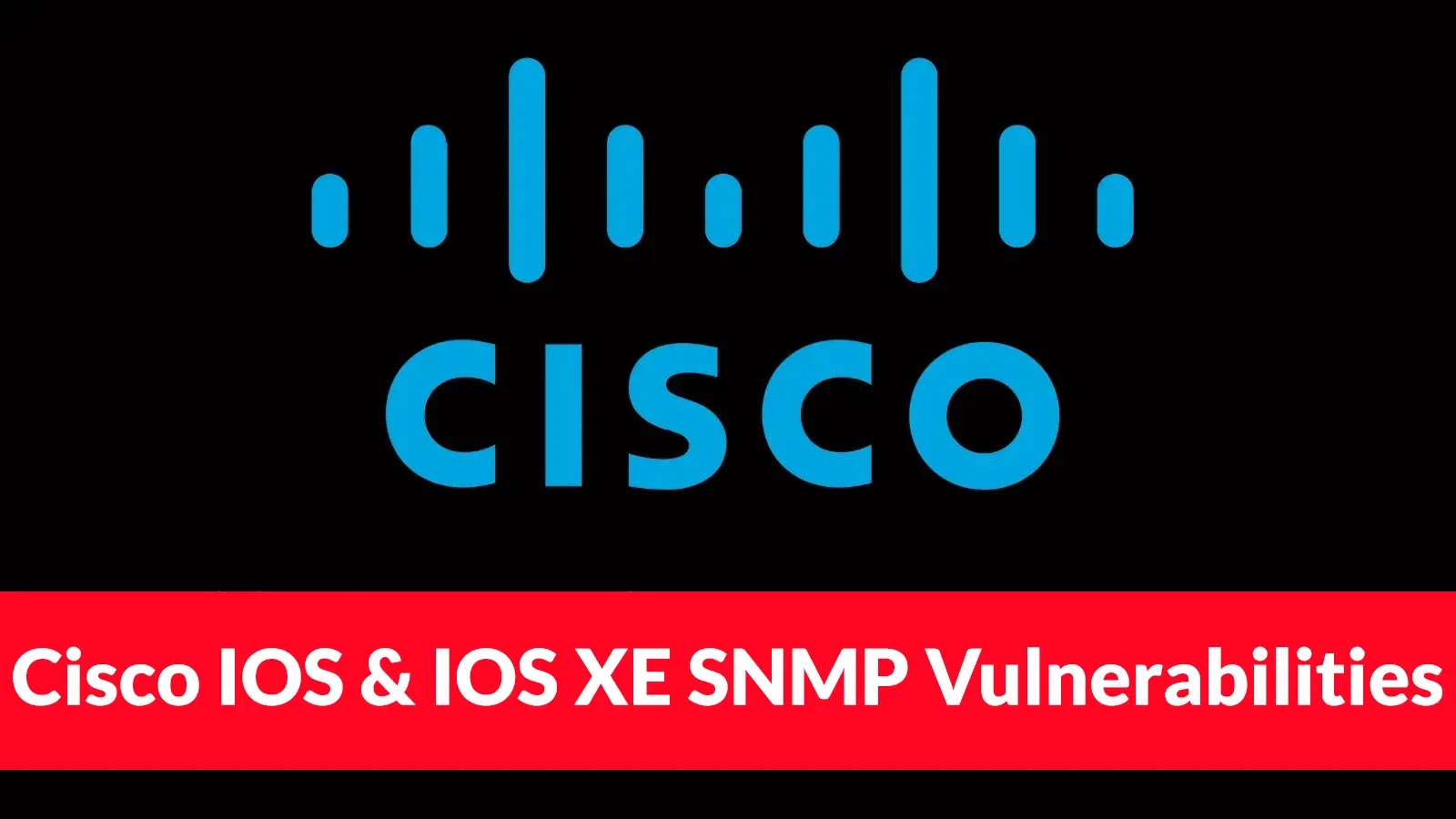
CISA Warns of Cisco IOS and IOS XE SNMP Vulnerabilities Exploited in Attacks
The cybersecurity landscape has recently seen a significant alarm raised by CISA (Cybersecurity and Infrastructure Security Agency) regarding critical vulnerabilities within Cisco’s widely deployed Simple Network Management Protocol (SNMP) implementations. Specifically, Cisco IOS and IOS XE devices are reportedly under active exploitation, posing a substantial risk to network infrastructure globally. This urgent warning underscores the necessity for immediate attention and proactive measures from IT professionals and network administrators.
Understanding the Threat: Cisco IOS and IOS XE SNMP Vulnerabilities
At the heart of CISA’s alert is CVE-2025-20352, a critical buffer overflow vulnerability within the SNMP engine of Cisco IOS and IOS XE. First disclosed in August 2025, this flaw presents an alarming attack vector: unauthenticated remote attackers can leverage an oversized SNMP request to trigger the buffer overflow, leading directly to arbitrary code execution on affected devices. The implications are severe, potentially allowing attackers to gain full control over network devices, intercept traffic, inject malicious configurations, or disrupt critical services.
SNMP, a foundational protocol for managing and monitoring network devices, relies on agents running on devices to collect and transmit data to a central management system. The exploitation of this vulnerability within the SNMP engine bypasses standard authentication mechanisms, making it an especially potent threat. Network devices running Cisco IOS and IOS XE are ubiquitous, managing everything from enterprise networks to service provider infrastructure, which broadens the potential impact of CVE-2025-20352 considerably.
The Impact of Active Exploitation
CISA’s warning is not merely theoretical; it confirms that these Cisco SNMP vulnerabilities are being actively exploited in the wild. This shifts the threat from a potential risk to an immediate danger for any organization utilizing vulnerable Cisco networking equipment. Active exploitation means attackers have developed and are deploying functional exploits, making it a race against time for organizations to patch their systems.
An attacker who successfully exploits CVE-2025-20352 could achieve:
- Remote Code Execution (RCE): Full control over the compromised Cisco device.
- Network Eavesdropping: Intercepting sensitive data transiting the network.
- Network Disruption: Causing outages or reconfiguring devices for malicious purposes.
- Lateral Movement: Using the compromised device as a pivot point to attack other systems within the network.
Remediation Actions for Cisco SNMP Vulnerabilities
Given the confirmed active exploitation, immediate action is paramount. Network administrators and security teams must prioritize mitigation efforts to protect their infrastructure.
- Patching and Updates: Cisco has undoubtedly released security updates to address CVE-2025-20352 and related vulnerabilities. Organizations must identify all affected Cisco IOS and IOS XE devices and apply the latest security patches without delay. Refer to official Cisco security advisories for specific version information and upgrade paths.
- Disable SNMP if Unused: If SNMP functionality is not actively used or is not essential for network operations on certain devices, disable it completely to eliminate the attack surface.
- Restrict SNMP Access: For devices where SNMP is necessary, implement strict access control lists (ACLs) to limit SNMP traffic only from trusted management stations. This significantly reduces the window of opportunity for remote unauthenticated attackers.
- Use SNMPv3: If possible, migrate from older, less secure SNMP versions (like SNMPv1 and SNMPv2c) to SNMPv3, which offers encryption, authentication, and message integrity, significantly enhancing security.
- Network Segmentation and Firewalls: Isolate critical network infrastructure and implement robust firewall rules to restrict inbound and outbound SNMP traffic to only authorized subnets and hosts.
- Monitor Network Traffic for Anomalies: Implement continuous monitoring for unusual SNMP traffic patterns, such as sudden increases in request volumes or requests originating from unexpected IP addresses.
- Regular Audits: Perform regular security audits of network configurations and device logs to identify potential compromises or misconfigurations.
Detection and Mitigation Tools
Leveraging appropriate tools is crucial for identifying vulnerable devices and implementing effective countermeasures.
| Tool Name | Purpose | Link |
|---|---|---|
| Nessus | Vulnerability scanning and detection for Cisco IOS/IOS XE vulnerabilities. | https://www.tenable.com/products/nessus |
| OpenVAS | Open-source vulnerability scanner to identify SNMP misconfigurations and known CVEs. | http://www.openvas.org/ |
| Wireshark | Network protocol analyzer for detecting anomalous SNMP traffic patterns. | https://www.wireshark.org/ |
| Cisco Security Advisories | Official source for vulnerability information, patches, and mitigation guidance. | https://tools.cisco.com/security/center/publicationListing.x |
Conclusion
The CISA warning regarding active exploitation of Cisco IOS and IOS XE SNMP vulnerabilities, particularly CVE-2025-20352, demands immediate and decisive action. Organizations must prioritize patching, tighten access controls for SNMP, and consider disabling the protocol where it is not critical. The active nature of these threats means that inaction could lead to severe network compromises, data breaches, and significant operational disruption. Staying informed through official security advisories and maintaining a proactive security posture are essential defenses against such persistent and evolving threats.





